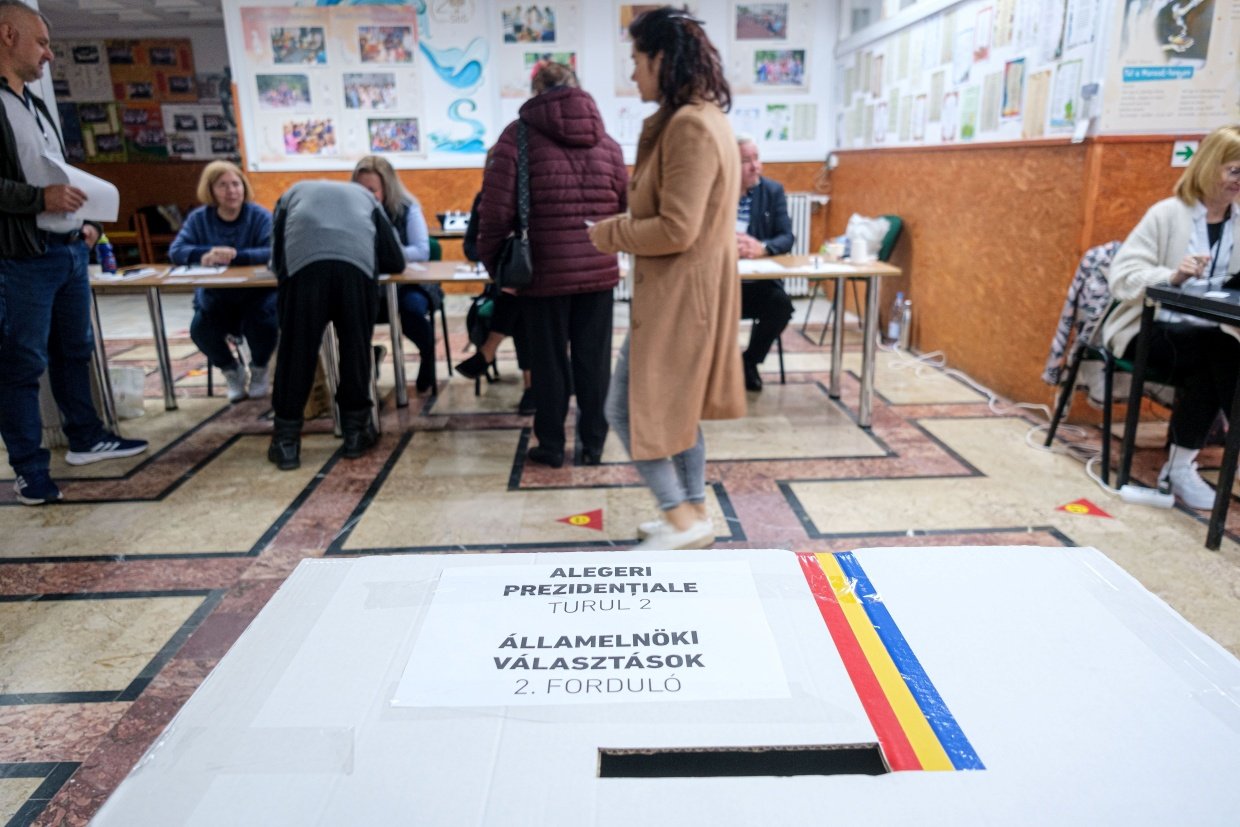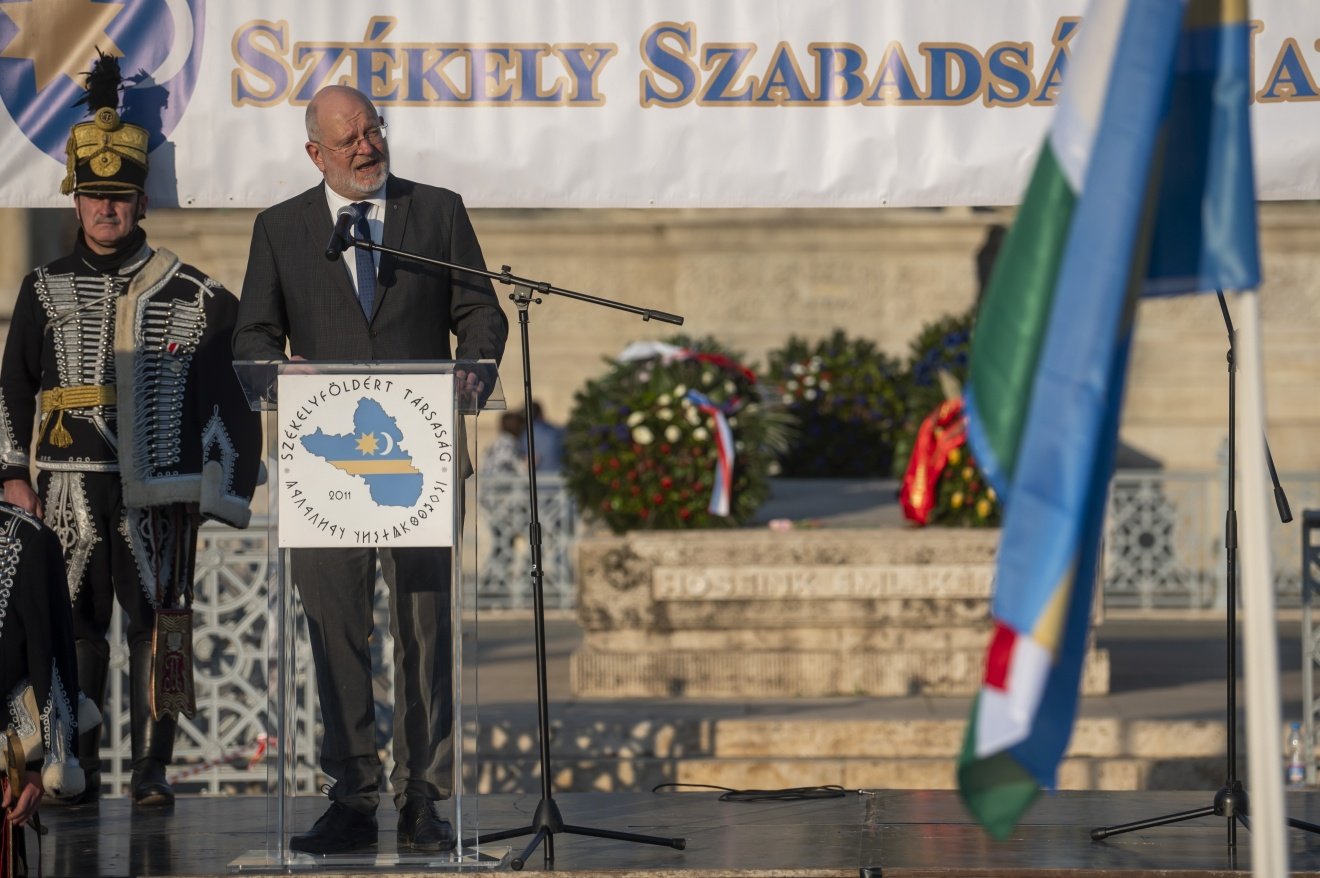
In Romania’s presidential runoff, independent candidate Nicușor Dan won with 53.60% of the vote, defeating nationalist George Simion, largely due to strong support from Transylvanian Hungarians.Continue reading

With the election of Nicusor Dan as Romanian Head of State, there is a chance that the president, through his mediating powers, can initiate a process of reconciliation within Romanian society by showing positive change towards the Hungarian community, said Zoltán Zakariás, President of the Hungarian Alliance of Transylvania (EMSZ), at a press conference in Cluj-Napoca (Kolozsvár) on Tuesday.
The president of the smaller Hungarian party in Transylvania assessed the results of Sunday’s decisive round of the Romanian presidential election together with his deputy, István Csomortányi.
We can say that with this victory, the Romanian electorate has given itself a second chance for real change since 1989,”
said Zoltán Zakariás. This will be a slow process, but with the cooperation of all parties involved, it will lead in the right direction, he added.
Mulțumesc!
Ne vedem în câteva minute la Cișmigiu! pic.twitter.com/uxwfTzYPmN— Nicușor Dan (@NicusorDanRO) May 18, 2025
The EMSZ president, who won a seat in the Romanian Parliament on the Democratic Alliance of Hungarians in Romania (RMDSZ) list, emphasized that the results of the first round showed that Romanian voters want change, with 80 percent not voting for the ruling party’s candidate.
He recalled that even before the first round, the EMSZ had “made a principled decision in accordance with its own program and traditions,” and openly supported Nicusor Dan, as they considered him a promising candidate who “had no negative past with the Hungarian community.” Furthermore, his activities as a civil servant and mayor showed that he believes in local government and respects local communities, which is in line with the EMSZ’s program, he said, adding that the result proved that they had made the right decision.
We can be proud that the Hungarian community made a responsible decision. First and foremost, we can be proud that they had a say in this election despite all kinds of disruptive and discouraging attempts,”
said Zakariás, referring to the outstanding results achieved in the Hungarian-populated counties. He noted that in municipalities led by EMSZ mayors, the mayor of Bucharest achieved a record result—receiving between 90 and 100 percent of the vote.
Zakariás assessed that the election had produced the right result and that it had been a good decision to choose Nicusor Dan, as he was the only one who could defeat George Simion, president of the Alliance for the Union of Romanians (AUR), and the extremists. He attributed Dan’s victory to strong mobilization among young voters in major cities and the diaspora.
According to Deputy President István Csomortányi, it is important to learn lessons from Sunday’s election, and he said that it was “completely wrong” for the RMDSZ to “encourage voters to support the ruling parties’ joint candidate, Crin Antonescu, on behalf of the Hungarian community.”
It was a huge mistake to pit the Hungarian community against the will of the Romanian society,”
he said.
According to the deputy president, it was also wrong to claim that only Crin Antonescu could defeat George Simion. “We are convinced that Crin Antonescu would not have achieved this huge success if he had made it to the second round; today, the president of Romania would be George Simion,” said Csomortányi, who believes that the RMDSZ’s support for Antonescu was a “strategic mistake.”
He said that while the Romanian governing parties have taken some responsibility, the RMDSZ has not acknowledged that mistakes were made, even though this would be expected, since these mistakes are reflected in statements made about the Hungarian community. “It was not the RMDSZ that saved the Hungarians of Transylvania, but the Hungarians of Transylvania who saved themselves,” Csomortányi declared.
He added that if the RMDSZ does not admit to its mistakes, it should at least refrain from turning the result into “success propaganda,” because “it is this type of misrepresentation and communication lies that drive large numbers of Transylvanian Hungarian voters away from the polls.”
He believes that the lesson of the presidential election for the EMSZ was that there is a need for pluralism in the Hungarian community in Transylvania, and this applies not only to local conditions and local governments, but also to the national situation. Their task is to strengthen the organization and actively participate in public life, “because political pluralism gives the Hungarian community in Transylvania its self-defense reflexes,” Csomortányi emphasized.
Via MTI; Featured photo: MTI/Balogh Zoltán